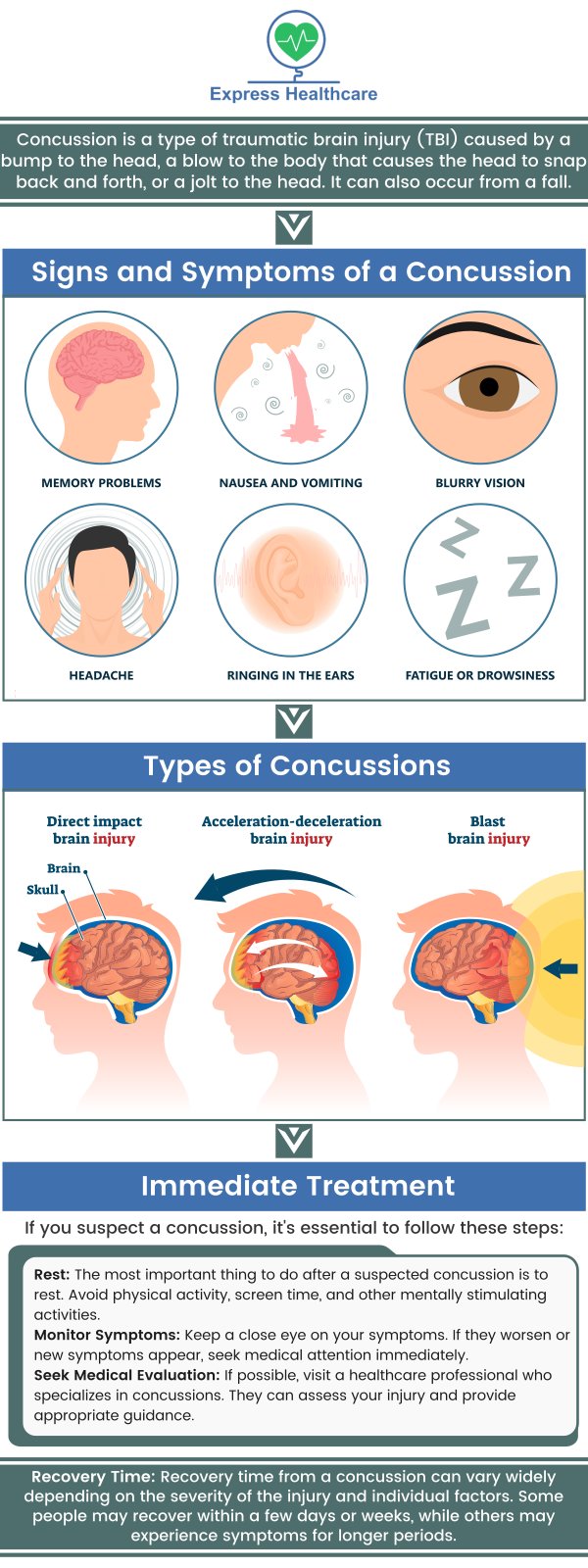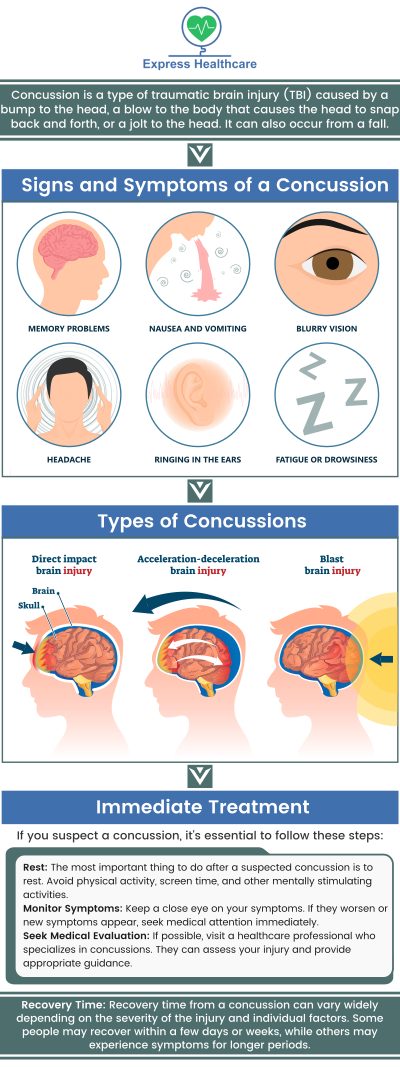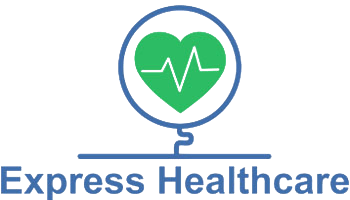Concussions Diagnosis and Treatment in College Park, MD
A concussion is a brain injury that affects the way the brain functions and can cause symptoms such as headache, dizziness, and disorientation. Concussions are serious and require medical attention. Talk to our team of leading healthcare professionals today at Express Healthcare, LLC, Urgent Care Clinic about treatments. For more information, contact us or schedule an appointment online. We are conveniently located at 4701 Melbourne Place College Park, MD 20740.





Additional Services You May Need
▸ EKG, Stress Tests, Cardiology
▸ Physical Therapy
▸ Internal Medicine
▸ Urgent Care
▸ Vaccines & Immunizations
▸ On-Site Lab Screening
▸ X-Ray & Imaging
▸ Women’s Health
▸ Occupational Health




